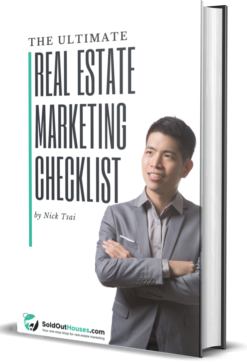Are you willing to close more house deals but various objections raised by your client make that impossible?
A few objections are quite normal in real estate. If you have a lot of them, your presentation most certainly needs to be improved. We all know that no one likes being sold, but everyone enjoys buying, so you will inevitably meet some resistance along the way.
Unfortunately, in the real estate sector, the ability to hear an issue, respond effectively, move on, and ask for a sale is exceptional. The reason for this is that the majority of agents have not invested the necessary time to learn and internalize the scripts for the most common objections.
Here are the most common real estate objections. Want to know how to approach, overcome and handle them? So, let’s dive in through how you, as a realtor or agent, can handle the most common home seller objections.
6 Most Common Seller Objections in Real Estate
1. I need a professional with experience in my area or price range.
Clients that tell you they prefer to deal with a specialist are implying that they don’t trust you to sell their house. They will instinctively look for another realtor if your prior listings were notably different from their property, whether because of price or location.
However, you may convince potential customers that you have the expertise necessary to obtain the greatest price for their house by showing up to meetings prepared with comparable sales and a clear understanding of the inventory. This script will also do the magic:
“Although I have more experience selling homes in different areas or price ranges, reviewing the comps for recent sales and houses currently on the market might help you rapidly catch up. My knowledge of completing sales through successful marketing and savvy negotiating is something that is far more challenging to acquire.”
2. We need to finish off a few home improvement projects before we’re ready.
You are unquestionably proficient at using the best tools to sell a house. As a result, a client attempting to sell their house on their own will waste your time and money on techniques that have yet to be proven to bring in buyers. In this case, you must persuade them that even if they sell the property, they would not receive the money spent on repairs, so why waste time and money in the first place? You may say something like this to persuade them.
“I agree that it’s important to keep the property in good shape, but you probably didn’t realize how little difference it would make in finding a buyer.
Let’s list your home, ask some of the greatest brokers to visit it, and receive their feedback. The good news is that while we’re in escrow, you’ll discover exactly which jobs you don’t need to accomplish and which ones you do.
Wouldn’t it be great if you didn’t have to pay any money to sell your house?”
3. I want an agent who can concentrate their attention on my property because you appear to have a lot on your plate already.
Customers like to think that their agent will spend every waking minute working to sell their house. They want to think they are your sole customer, even though they are aware of the truth. Clients, however, don’t always think through the effects of their requests. They don’t always consider the reality that agents with more free time typically have fewer clients for a reason. You must thus emphasize that a successful agent is active.
“I appreciate you letting me know, and I understand your worry. I can guarantee that having a full plate also means having a comprehensive set of management skills.”
As an analogy, I like to say it’s the difference between having your first child and having your third child. Every detail counts to a new agent, and since you may not have as much on your plate as you can handle, you have plenty of time to devote to each aspect.
You eventually start to become an expert in each detail, and from there you advance to prioritizing them. Every detail still counts when your experience grows and your workload increases, but you are aware of which ones are most important. You may spend less time doing everything and more time doing the things that are important to you. Your house and the time and consideration I will devote to it are both important to me.
4. Why am I required to sign a listing agreement first? I genuinely want to have alternatives.
Prospective clients who are concerned about selling their house before they have found a replacement sometimes have no idea how complicated real estate deals may be. They might not be aware of the market’s level of competition or how frequently buyer conditions result in bids being rejected. However, if you explain why waiting is not a good idea, you may overcome this argument; and you can explain using this script.
“I understand entirely why you would not want to sign a contract. You are aware, however, that almost every seasoned expert enters into a contract with you. They all have contracts with lawyers and accountants. This is crucial because it enables us to help you and devote our time and energy to providing the best possible service to our clients. It has no significance if there is no contract.
Other customers have requested that I work in this way, but I’ve rejected it since our constant communication process and our tested method for marketing and selling homes are such a big part of our value proposition to them. Therefore, whether you’re thinking about attempting to accomplish this on your own or without a contract, I would encourage you to try not to think that way. With the appropriate professional in the field, you’re looking in, whether you pay for it now or you’ll pay for it later, you’re still going to pay for it.”
5. I’d rather sell my house myself to avoid paying a commission.
When your prospective clients indicate they want to sell their property themselves, they sometimes have little idea of all the work that has to be done before signing the contract and handing over the keys. They are usually ignorant of how much money for sale-by-owner houses leave on the table.
They apparently read about the procedure on the internet and determined that it wasn’t too tough. Or maybe they had a bad experience with you in the past. In any case, carefully examine their motives for wanting to sell on their own and persuade them that collaborating with you will boost their chances of success. Here’s how to go about achieving that.
“I’m going to tell you the same thing I tell everyone: sell your house on your own. I know you’re not doing it for financial gain because… My job is to get you the best price for your house so that you can profit more from the sale.
You could, of course, avoid paying commission, but research consistently shows that using agents results in higher sales prices than compensating for commission differences.
You should be aware that I will assume all of the risks upfront, so you will not pay a commission until the transaction is completed. However, if you want to sell it yourself, you will most likely have to spend money upfront for good marketing, etc.”
6. According to Zillow, our house is worth more than you claim.
We’re all aware that a Zestimate can’t be relied on. However, because Zillow is the most popular real estate website in the world, whether we like it or not, prospects are more inclined to trust it.
Keep in mind that, even if Zillow is your direct competitor in this scenario, you should not depict it as such. The vast majority of realtors make this mistake. Position yourself as a Zillow partner who helps users get the most out of the service.
Gaining a prospect’s trust allows you to begin teaching them about why a Zestimate is not the most accurate assessment of their property and why they should instead pick you.
To be clear, estimates only take into consideration refinances and deed transfers from family members when computing the amount; they do not include the condition of the home or any improvements. Here is a scenario to illustrate this:
“I definitely noticed Zestimate! In actuality, I intended to describe it briefly. After all, we did list 30 homes on Zillow last year. This platform is incredible.”
“But I wanted to let you know that the first Zestimate for each of the 30 residences was at least 15% off. In one case, by 40%. Why? because no Zillow agents are local to the area or will visit your home to evaluate it. Only an algorithmic attempt is made by Zillow to determine the market average. However, because their brokers are unconcerned, your purchasers will be as well.”
If a Zestimate is 15% lower, you will lose 15% on the sale. If the asking price is 15% more, the house will not sell, and you will lose money on the discussions. Isn’t it preferable to just sell your house for the highest feasible price?
6 Most Common Buyer Objections in Real Estate
Buyers may raise issues when they are unknowingly seeking to distance themselves from you. In addition, people often dislike salesmen, and they will test your connection before you have established a bond with them.
There are situations when concerns stem from risk aversion. After all, purchasing a house is a significant life event! And occasionally, the customer just isn’t aware of how things work.
You have the ability to change a no into a yes, regardless of what the issue is or what motivated it.
Here are the most common six buyer objections in real estate, as well as how to approach and overcome them.
1. One of my friends or relatives works in the real estate sector.
This is one of the most important financial decisions a buying client will ever make, so you definitely want it to be a logical one for them rather than one based on just emotions. As a result, the most common buyer objection in real estate provides a straightforward solution—acquiring second opinions and supporting them to make decisions that are best for them and their family.
You must persuade them that they must make the best option for their family and themselves by being as informed as possible because you are well aware that simply knowing someone does not guarantee the best financial outcomes. You are well aware that merely knowing someone does not guarantee the best financial outcomes. You may solve it by using the following script.
“That’s fantastic; I understand your loyalty, and I appreciate individuals who possess it.
In light of this, please allow me to ask you:
Have you ever bought or done something because a friend said, Hey, no problem? When you need help, I can handle it, you find out you didn’t get what you wanted. Have you been in that situation?
If the answer is yes.
Well, this time, it’s identical to that time, and I’m sure you can see the benefit of having me over to offer you a second opinion. But, of course, that wouldn’t hurt, would it?
Furthermore, how will you be able to criticize or fire your friend if you are dissatisfied with their job or services? Who would you rather shout at, your friend or me?
There’s also the risk of revealing more of yourself to your friend than you’re comfortable with. As you begin to bargain and prepare for the settlement, you’ll be discussing your money, life, and bottom line, exposing some weaknesses and blemishes. Are you convinced you want to reveal that much about yourself to your friend?”
2. We’re not quite ready to buy yet.
When a buying client claims they are not ready to buy, it is frequently because they have not given the purchase enough priority. You’ll need to perform some research to determine the cause of their lack of preparation.
It’s possible that they have a child who is about to graduate, and they are waiting to relocate till the nest is empty. This kind of emotional justification is challenging to argue against, but at least you’ll know why they’re thinking.
However, if they state that they do not believe now is the appropriate time to buy. That’s when your expertise as a realtor will be most beneficial. Inform them of the project’s financial elements and, together, determine the truth. That may be proven by saying:
“I am aware that there is never an ideal moment to purchase a property, so let me ask you: what precisely is stopping you from choosing to do so? (You will need to inquire further about their reasons for not buying.)
You do want what you said you wanted…, right? You also mentioned wanting… Is that correct?”
Is it the cost? Is it the monthly fee? Is it your house?
Based on that, let’s do the proper thing and sign a contract to purchase this house.”
3. I’ve already committed to working with a different agent.
When more agents are mentioned, always check to see if an agreement exists. Then, present your case and explain how your service will benefit them more. You must be cautious not to portray the other realtor unfavorably. Instead, just state how your service is superior to that of the other realtor. And you can do just that by saying this.
“Great! Have you finally agreed to a listing in written form? In my opinion, the only way to identify the agent that will get you the best house deal that suits your budget is to have a choice of which agency to work with.
Please provide me with their names so that I can send them the properties you’ve been looking at. I’m concerned that you don’t have a formal contract, and the only way for me to function as your real estate coach is if you have a signed buyer agreement, so I’ll email it to them. Without it, I’m functioning as a referee for your transaction. What are your thoughts about that?”
4. I’d want to hire your services, but I can’t afford a commission. Can you reduce your commission?
When presented with the lower commission dilemma, the most natural response is to begin proving your worth by detailing what you do and why you’re useful. And also, you have to let them know that they are not paying the commission and they are at no risk; this objection always pops up when the buying clients have little knowledge about the buying process.
You can educate them by saying;
“No, because the commission is paid by the seller. Therefore, you won’t be required to pay any commissions!
This is so that when you purchase the house, the sellers’ agent will split a commission with me. So I won’t expect payment from you.”
5. We are simply just searching.
Despite the fact that it initially appears to be an objection, this is a chance to enlighten the prospect and get information from them in return. To assess the prospect’s needs and qualify the prospect, use layered, open-ended inquiries.
Pay close attention to their response to ascertain whether it has specific timing concerns or evasive explanations. You could have a chance to excuse their passivity in the face of a genuine problem.
Here’s how you approach that:
“Great! Make sure your funding is in order as one of the initial measures. Have you already spoken to a lender Have you had a realtor go through the full home-buying process with you and the state of the market?
A terrific moment has come to begin! What are you trying to find? When did you start looking? ( This will reveal when they plan to act.)
Has anything caught your eye recently? (You’ll learn what they’re searching for from this. Additionally, it advances the discussion to a point where you may begin to assist them. Typically, they’ll claim to have discovered a couple of houses they like. Then you can inquire.)
What was it about the houses that you liked? ( If they tell you, pay attention!)
Why didn’t you purchase it, just out of curiosity?”
When you ask a question in this manner, the discussion may proceed in any direction. For example, they may disclose that they are working with a realtor (avoid the following argument), or they might disclose the tools they are employing.
Prepare yourself to demonstrate how your sources are more accurate.
6. I don’t believe our credit is strong enough.
One of the most common reasons consumers decide against buying a home is their concern about their ability to pay for it. In addition, they may feel that their credit isn’t good enough, worry about having to make mortgage payments, or just lack the down payment savings necessary.
If that’s the case, your purchasers could struggle to acquire a mortgage approval. Your expertise as a seasoned neighborhood real estate agent may be quite helpful in this situation. However, whether or not you can assess and select the best offer depends on your ability to close the business.
However, in most situations, the lead has the cash on hand but may be spending it on something else they value more than your offer.
And to do that this is just right to say:
“I fully understand. Have you asked a lender about it?
That occurs often. After meeting with a mortgage lender, many of my customers have discovered that their credit is better than they initially expected. Additionally, dealing with a lender might help you get started on resolving any credit concerns faster. Could I at least have one of my trusted lenders give you a call?
Did you know that there are various loan programs with a range of credit requirements? Why not at least schedule a meeting with a lender to learn your particular situation?”

I became a realtor when I was 25, Right now I’m a digital marketing expert helping realtors, brokers and real estate agents generate more leads online.





















